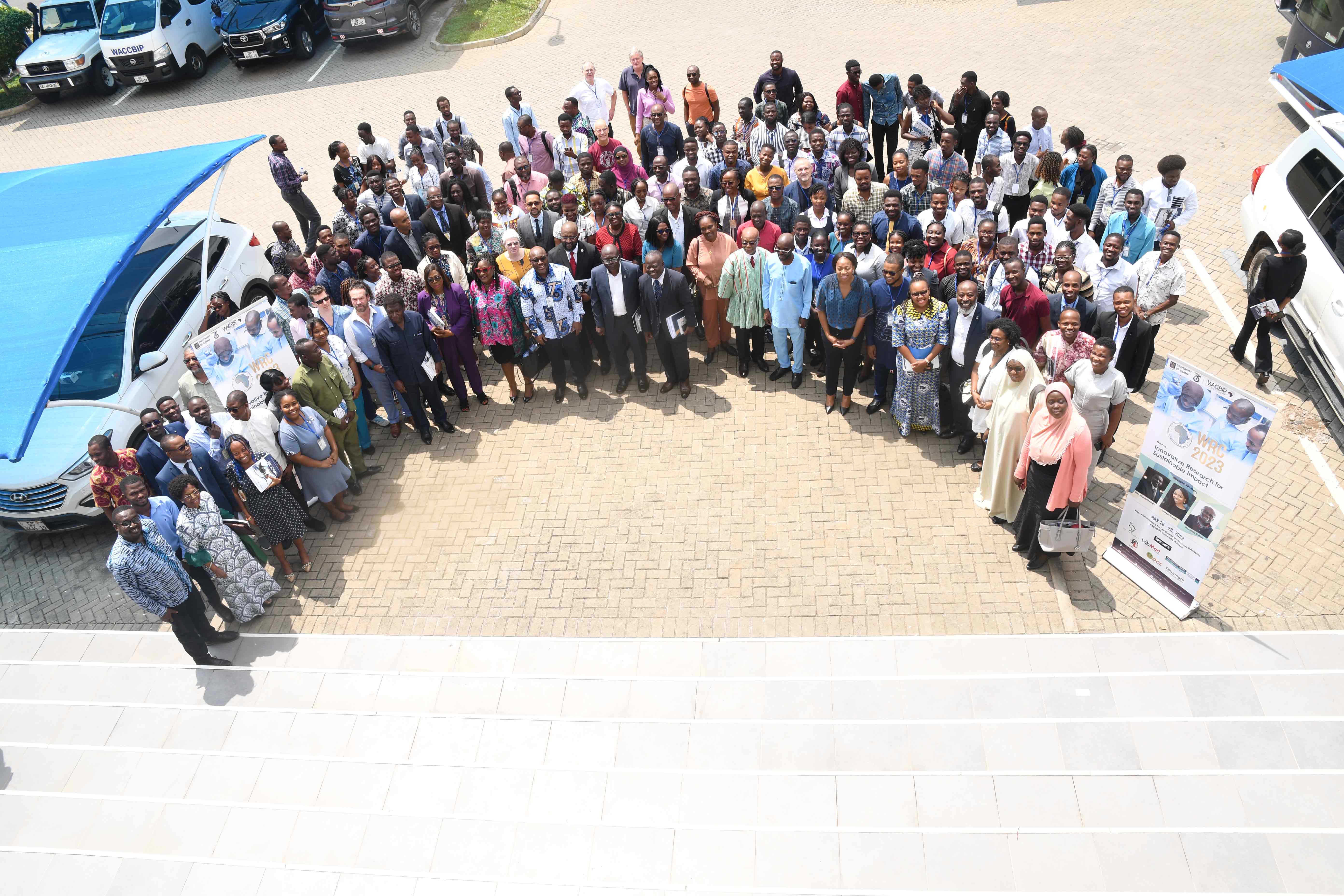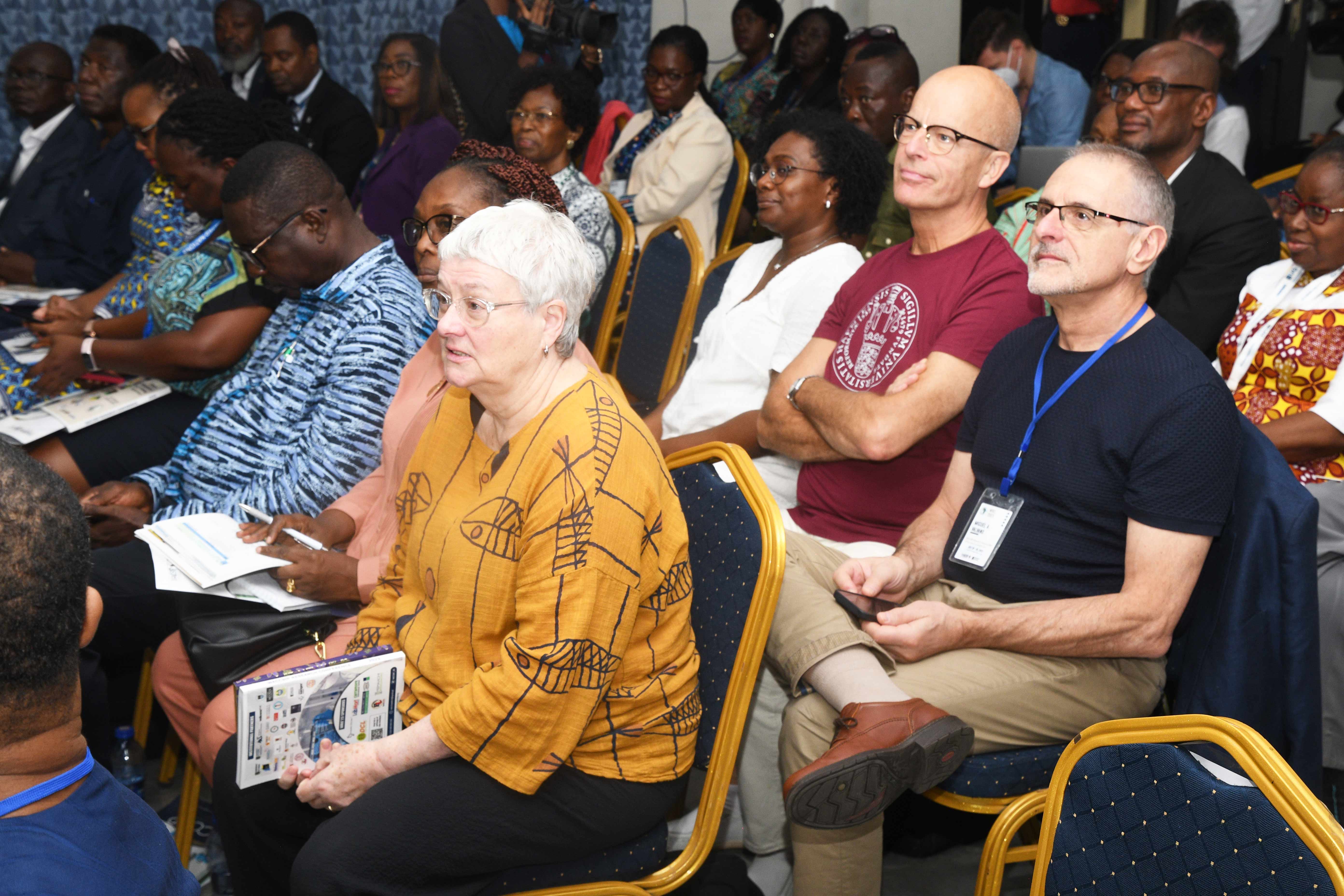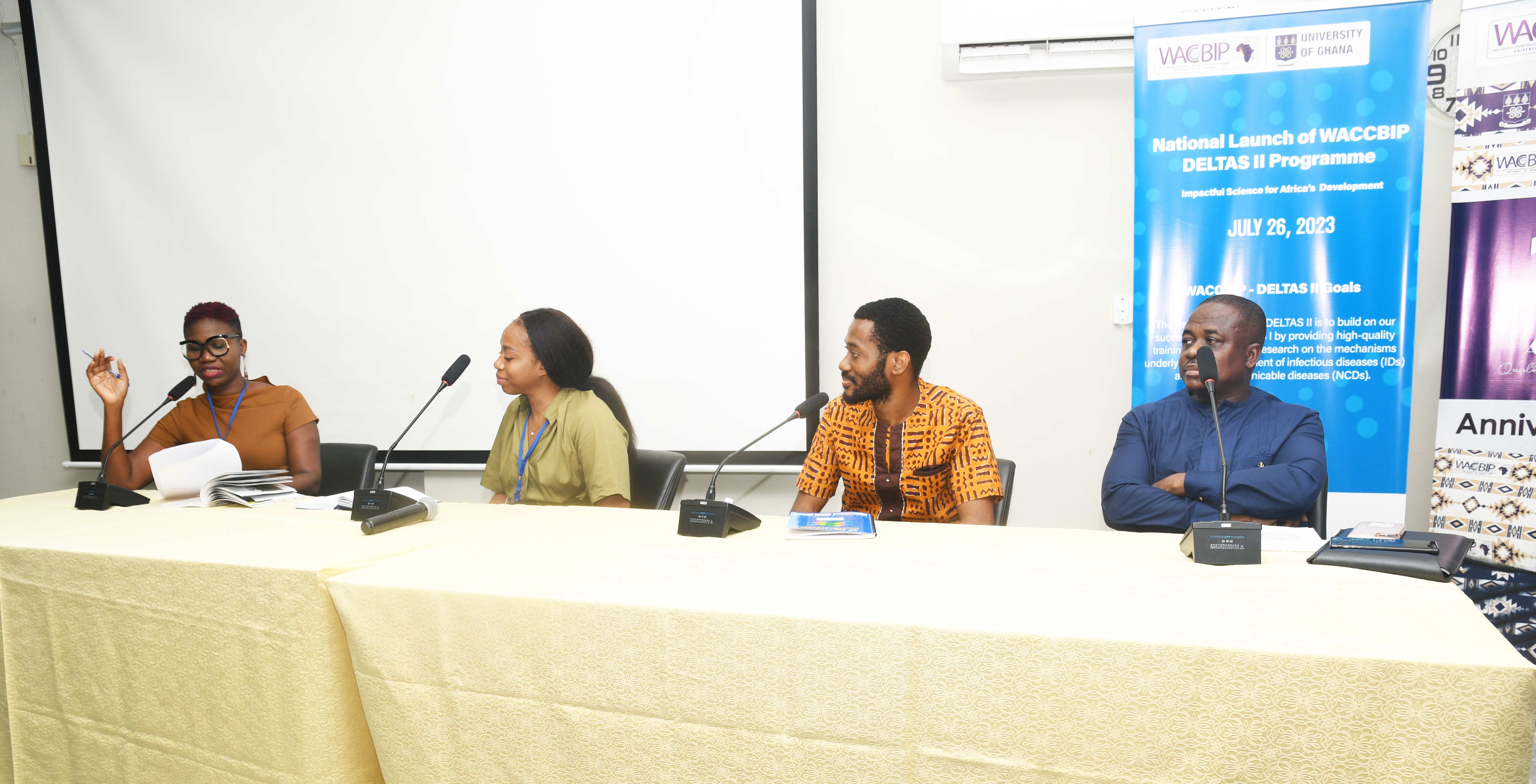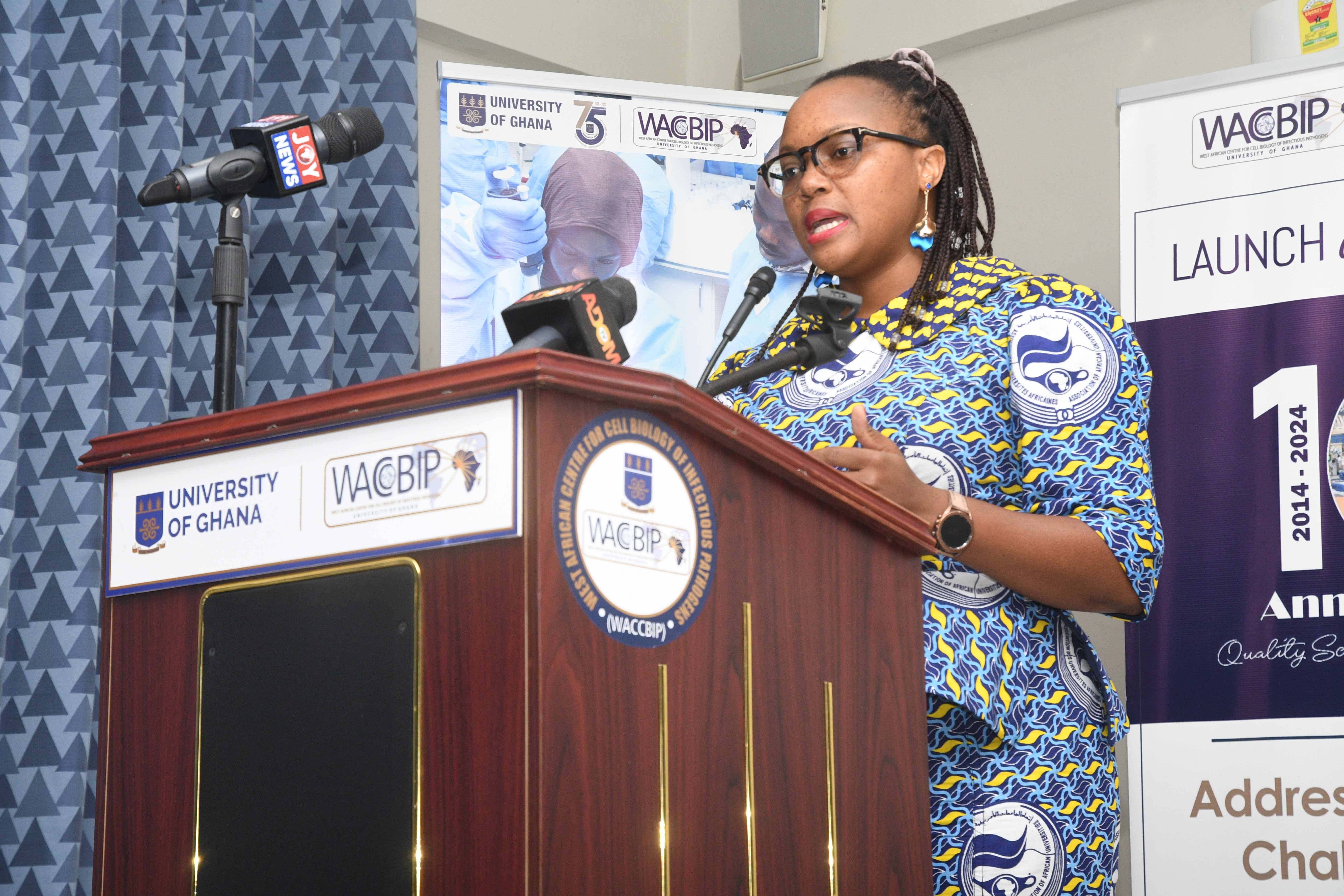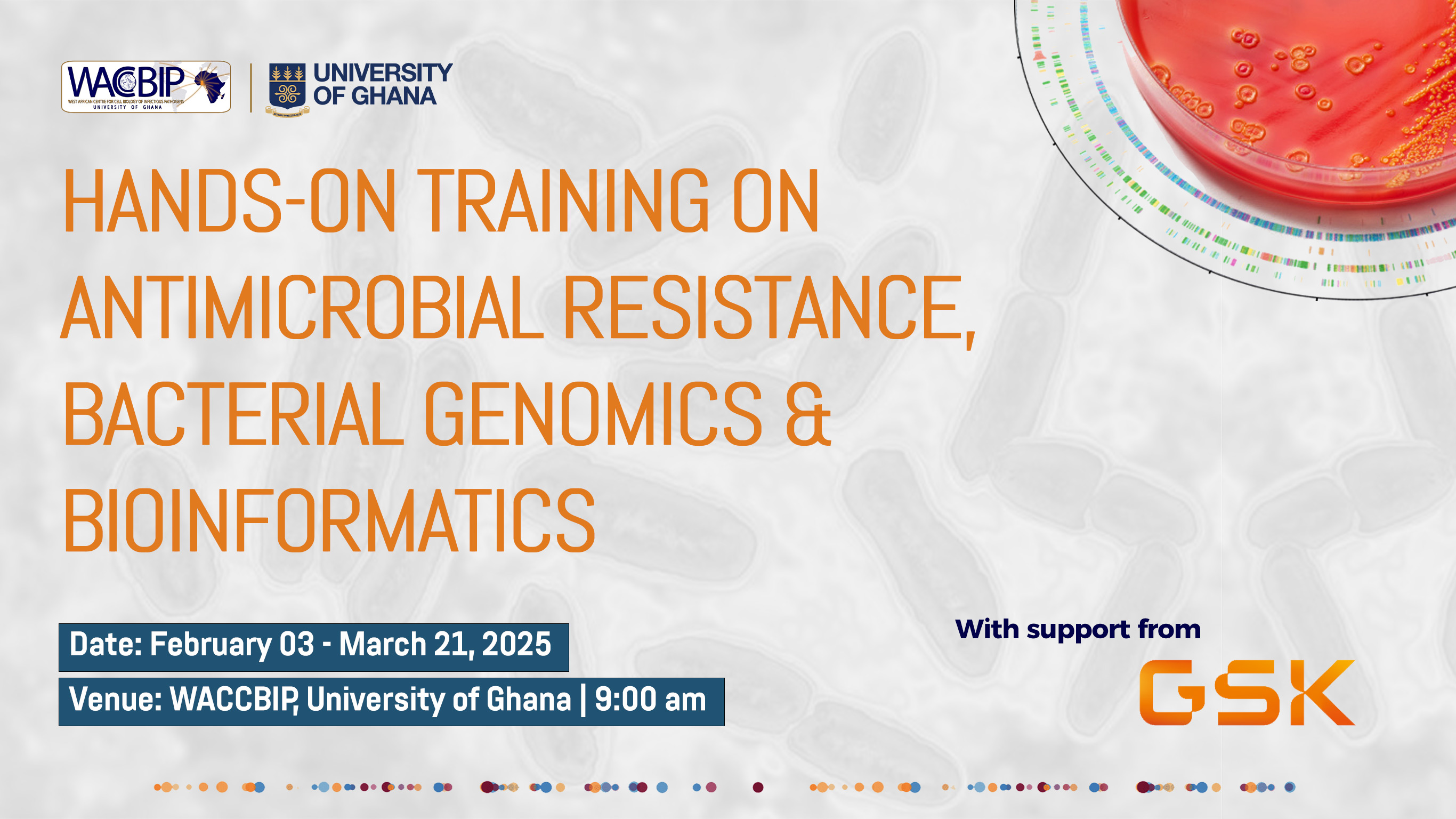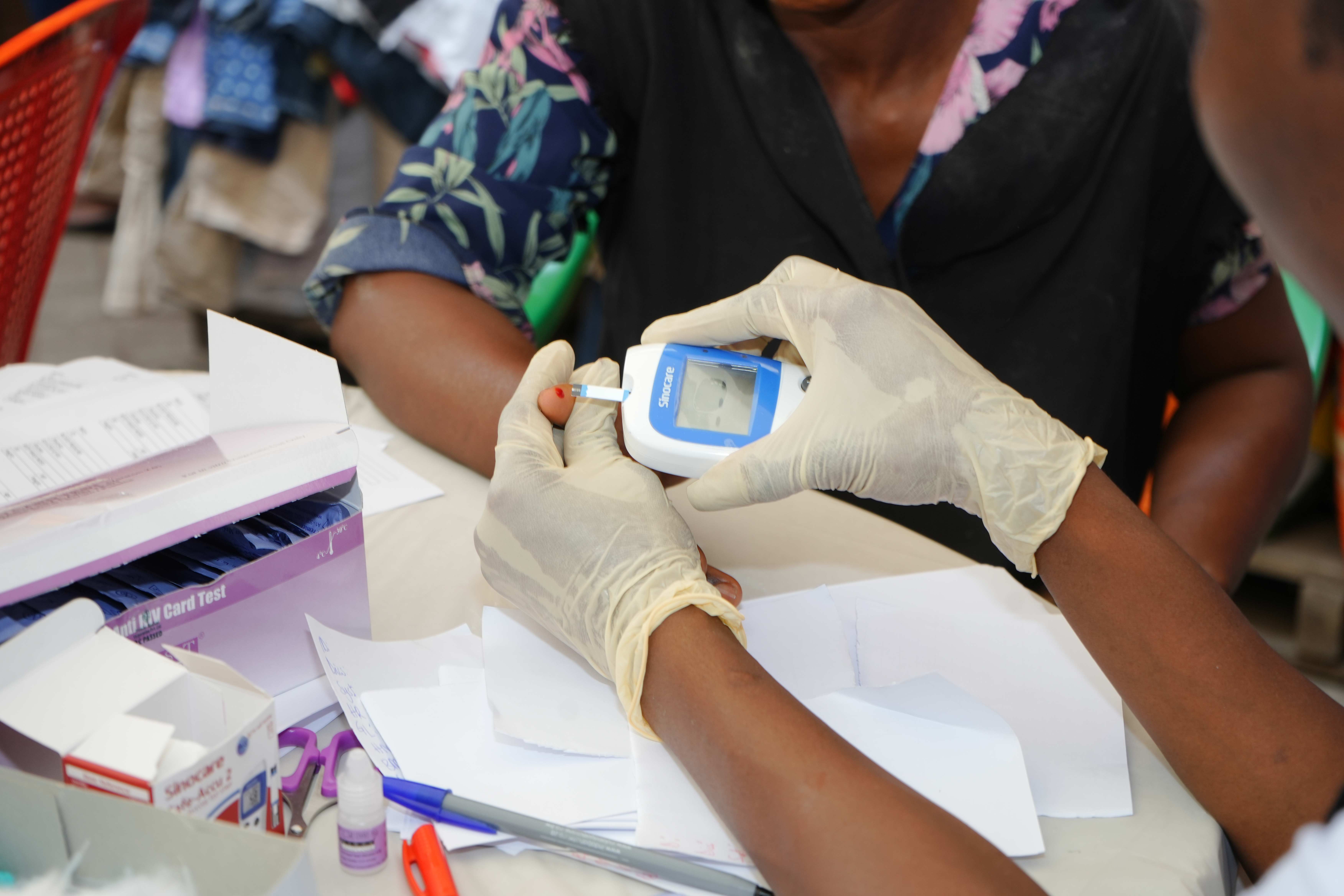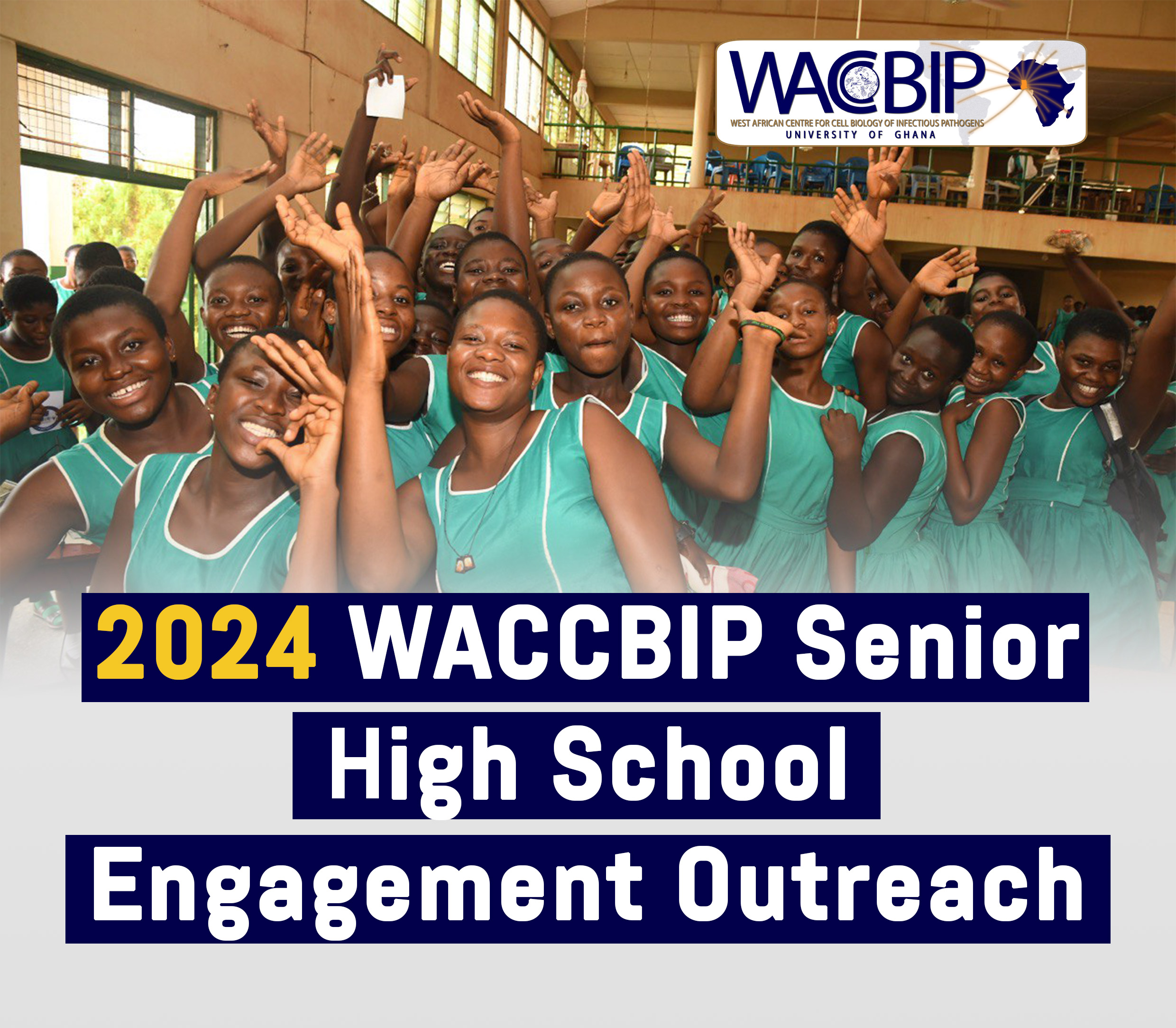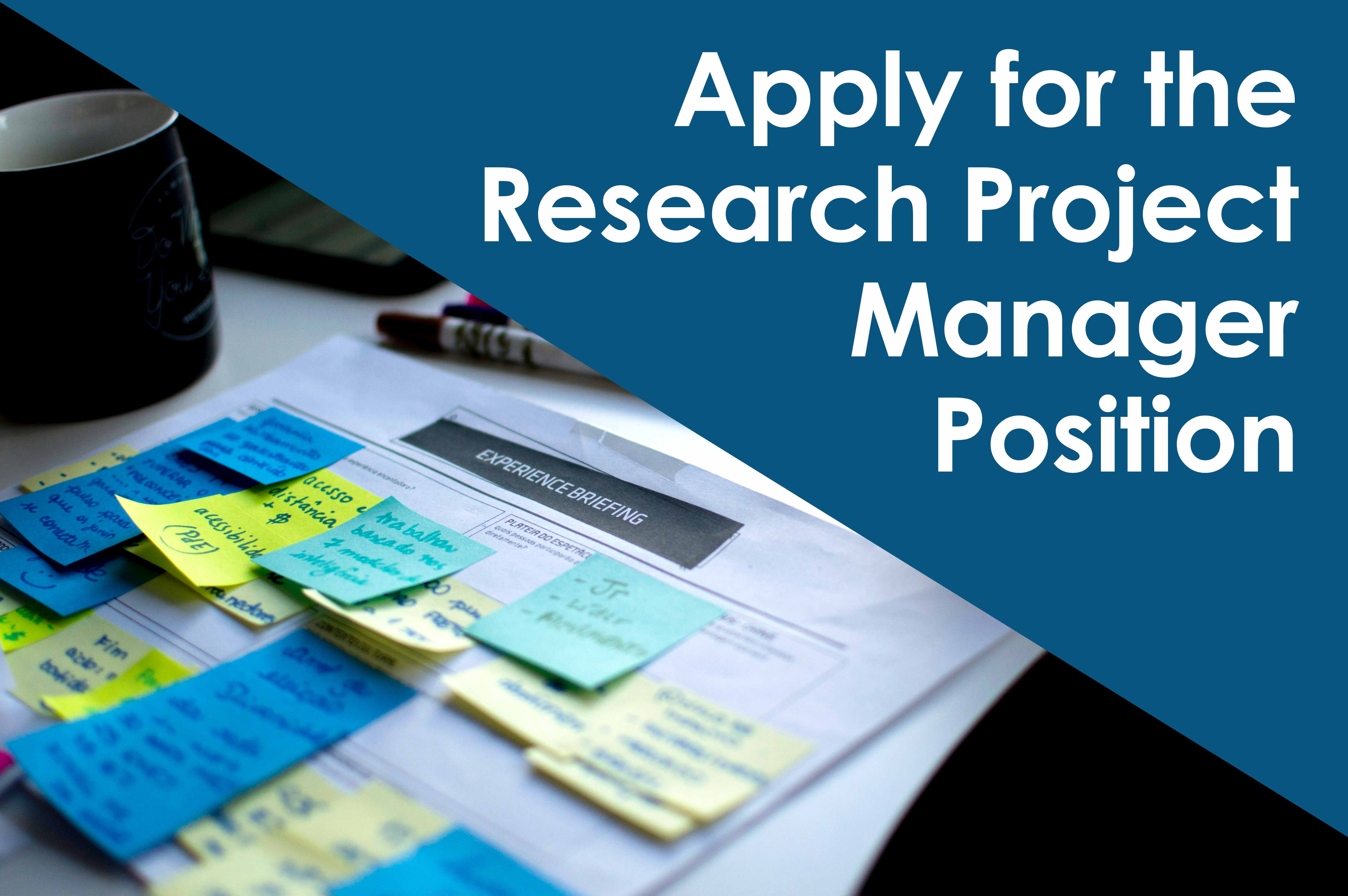The 7th Annual Research Conference of the West African Centre for Cell Biology of Infectious Pathogens (WACCBIP), under the banner of "WACCBIP Research Conference 2023," commenced at the University of Ghana.
The event featured a pivotal call upon the Government of Ghana to consider redirecting the existing COVID-19 levy toward the establishment of a dedicated Research and Innovation Fund. This endeavour aims to enhance the nation's capacity to effectively respond to health emergencies and foster innovation in the realm of scientific research.
Professor Gordon Awandare, the Director of WACCBIP, delivered the opening address to the distinguished participants of the WACCBIP Research Conference 2023, which centred on the theme "Innovative Research for Sustainable Impact." In his remarks, he underscored the urgency of elevating the priority of research funding within the country, urging a reduced reliance on external sources, especially during crises.
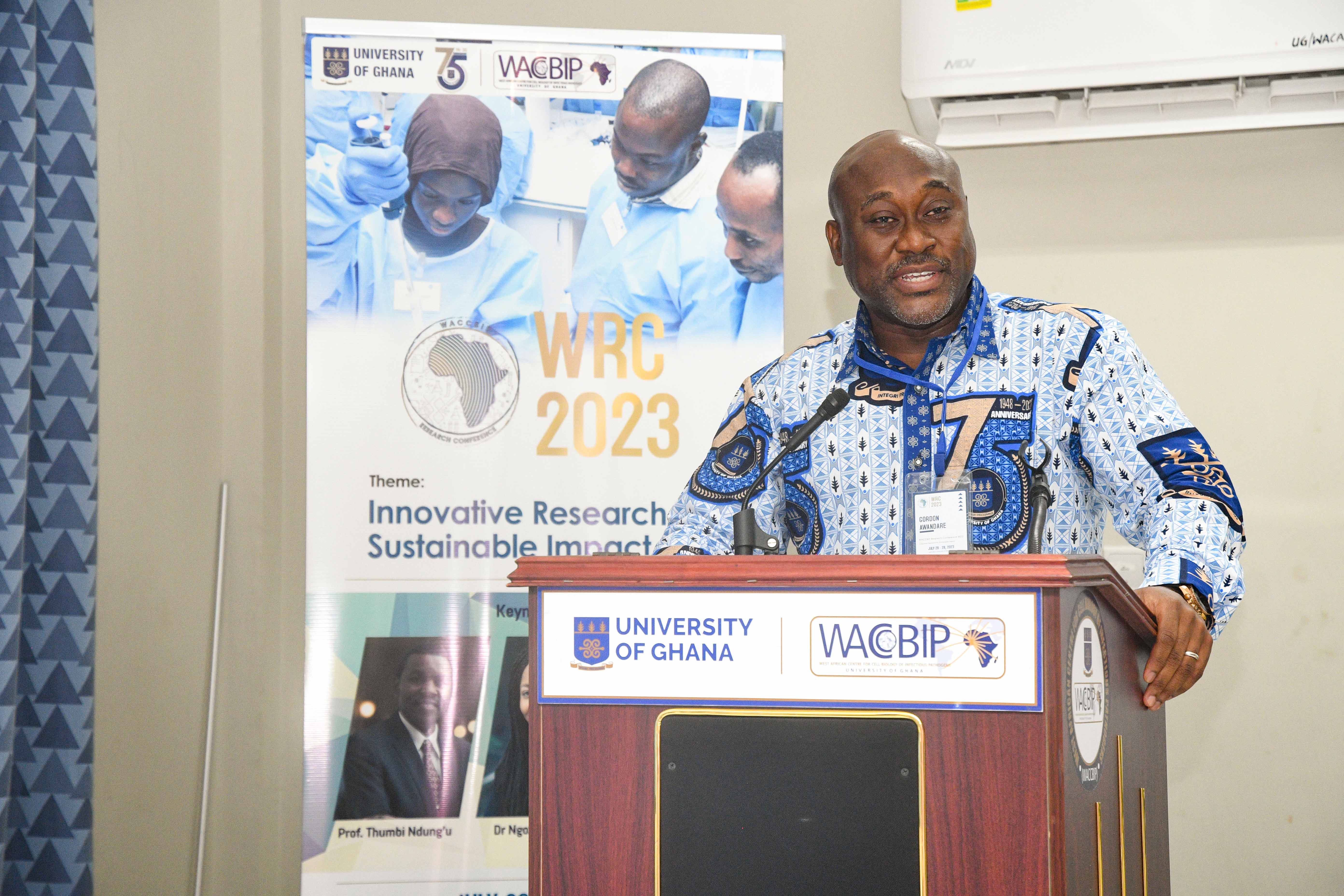
Figure 1: Prof Awandare welcoming participants to WRC2023.
Professor Awandare elaborated on his proposal to reposition the existing COVID-19 levy as a "research levy," funnelling the proceeds into the Research and Innovation Fund. He argued that this reallocation would provide a robust mechanism for empowering Ghanaians to contribute innovative ideas to the national research landscape, with a particular focus on health emergencies.
Emphasizing the need for a continuous commitment to research funding, Professor Awandare called for the annual allocation of resources to research within the national budget. While acknowledging the government's passage of legislation to establish a research and innovation fund, he urged the timely operationalization of this fund, highlighting the importance of initial start-up funding.
The WACCBIP Research Conference, recognized as one of the most prominent capacity-building initiatives on the African continent, assembled an assemblage of seasoned professionals and academics from the health research sector. These dedicated experts convened to deliberate on critical health-related issues facing the African continent.
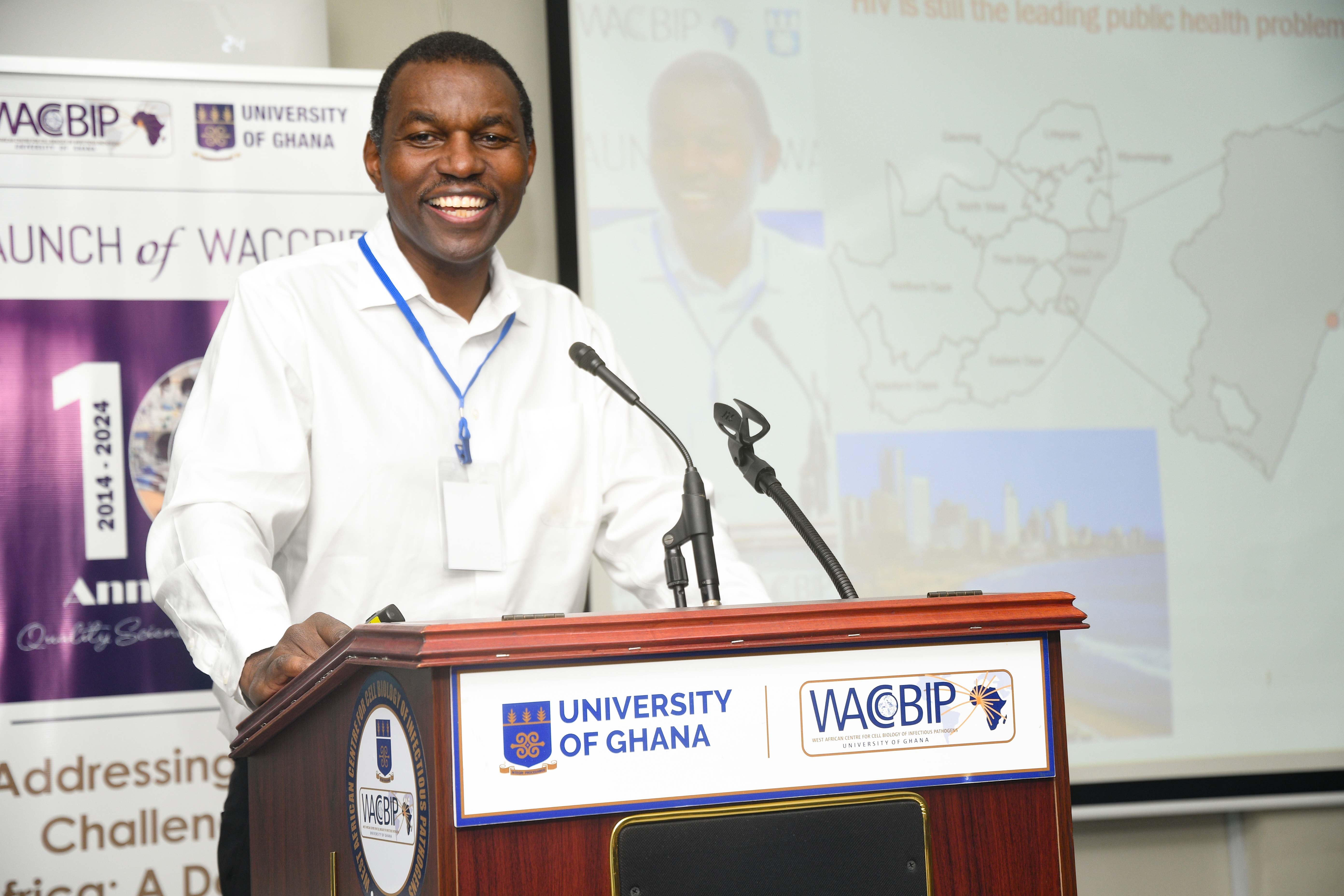
Figure 2: Prof Thumbi delivering a keynote lecture at the conference.
Figure 3: A cross-section of WRC2023 Participants
Figure 4: A photo of panel members at the conference.
The conference's formal inauguration featured the Vice-Chancellor of the University of Ghana as the Guest of Honour. She commended WACCBIP for its decade-long commitment to advancing scientific research and driving positive change. She underscored the centre's achievement in nurturing a vibrant community of researchers, scientists, and scholars dedicated to addressing pressing health challenges.
The Vice-Chancellor also stressed the multidisciplinary nature of WACCBIP's research, which encompasses infectious diseases, genomics, drug discovery, and bioinformatics. She articulated the importance of research transcending traditional boundaries to pioneer innovative solutions with a lasting impact on human health and well-being.
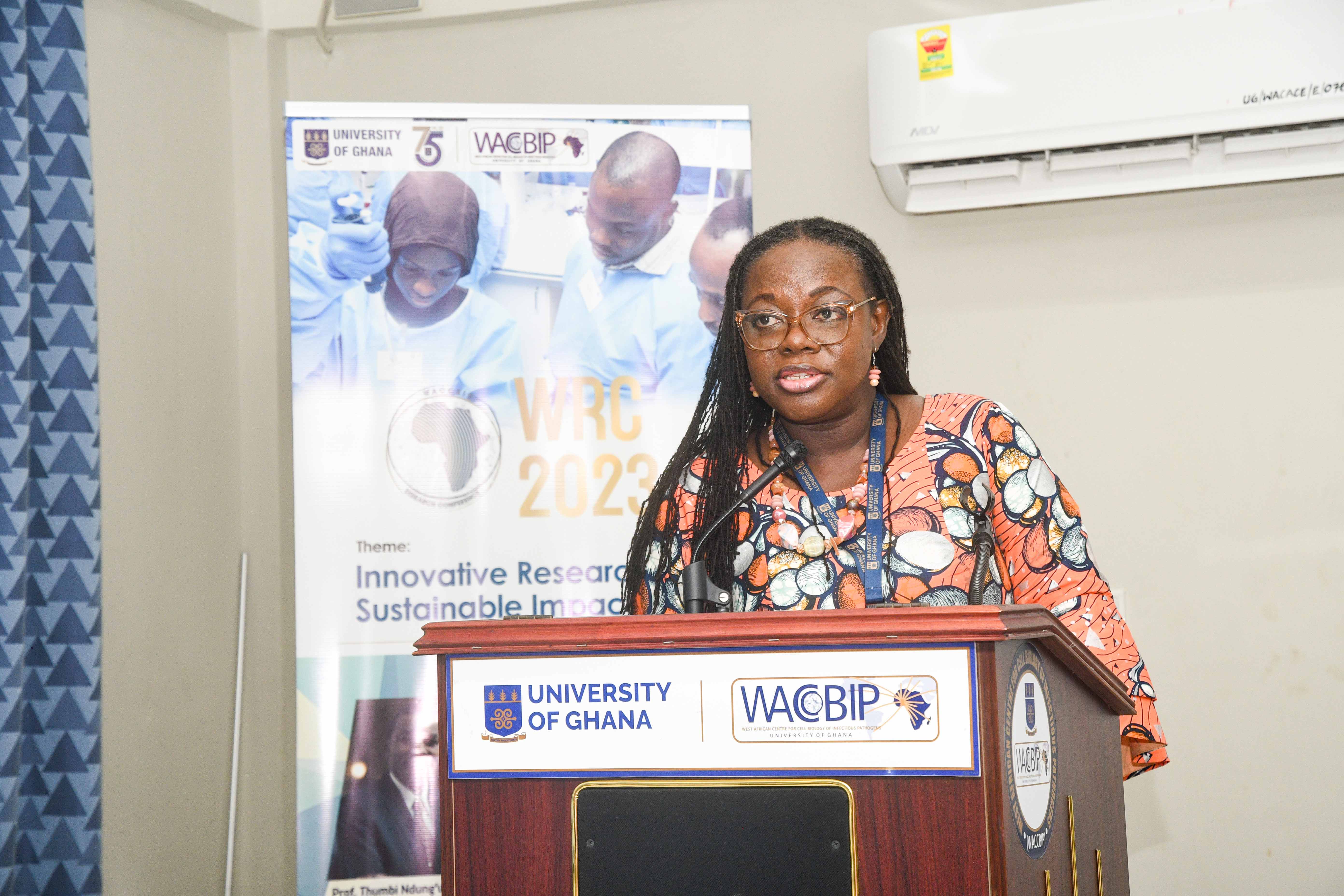
Figure 5: Prof Amfo, Vice Chancellor - UG and Guest of Honour speaking at the opening ceremony.
In a speech delivered on behalf of the World Health Organization (WHO) Country Representative, Professor Francis Kasolo, accolades were extended to WACCBIP on its 10th anniversary. Professor Kasolo emphasized the timeliness of the conference's theme, "Innovative Research for Sustainable Impact," underlining the need for research to adhere to WHO-recommended ethical standards. He lauded WACCBIP's exemplary use of genomic sequencing during the pandemic, which illuminated the evolution of COVID-19 in Africa and Ghana. He implored researchers to view their work as a practical tool for changing lives, emphasizing its profound impact on improving public health.
Dr. Sylvia Mkandawire, Project Manager for the Ace Impact Project, expressed gratitude for WACCBIP's commitment to enhancing the quality of higher education in Africa. She lauded the centre's consistent demonstration of scientific excellence and transformative research and innovation. Dr. Mkandawire underscored the importance of sustainability within the ACE Impact Project and encouraged participants to explore uncharted territories beyond conventional thinking.
Figure 6: Dr Sylvia, Project Manager - ACE Impact Project expresses her gratitude at WACCBIP's commitment to scientific excellence.
The conference's opening ceremony marked the launch of two significant milestones in WACCBIP's history: the formal launch of WACCBIP's 10th Anniversary Celebration and the National Launch of the WACCBIP-DELTAS II Programme.
The Vice-Chancellor officiated the formal launch of WACCBIP's 10th Anniversary Celebration, featuring the theme "Addressing Health Challenges in Africa: A decade of Building World-class and Innovative Scientific Capacity." She praised the diversity of the planning committee and anticipated their successful commemoration of a decade of academic excellence, capacity building, and cutting-edge research in the Health Sciences.
The National Launch of the WACCBIP-DELTAS II Programme was also conducted by the Vice-Chancellor, supported by dignitaries in attendance. Professor Gordon Awandare explained the programme's objective, building upon the successes of DELTAS I. DELTAS II seeks to provide high-quality training and advanced research on the development of infectious and non-communicable diseases. The $70 million programme, jointly funded by the Wellcome Trust and the United Kingdom's Foreign, Commonwealth, and Development Office, will strengthen African research capacity.
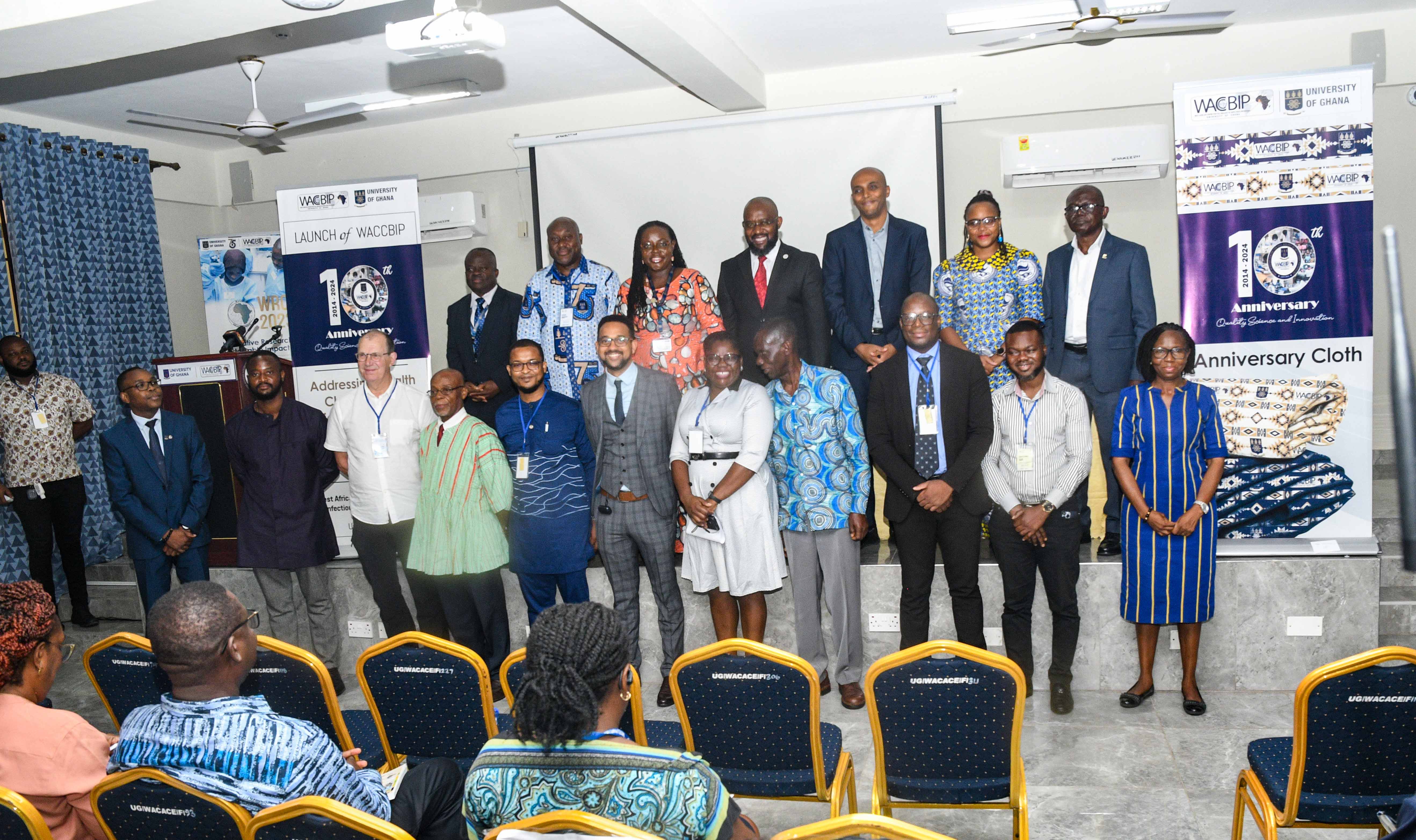
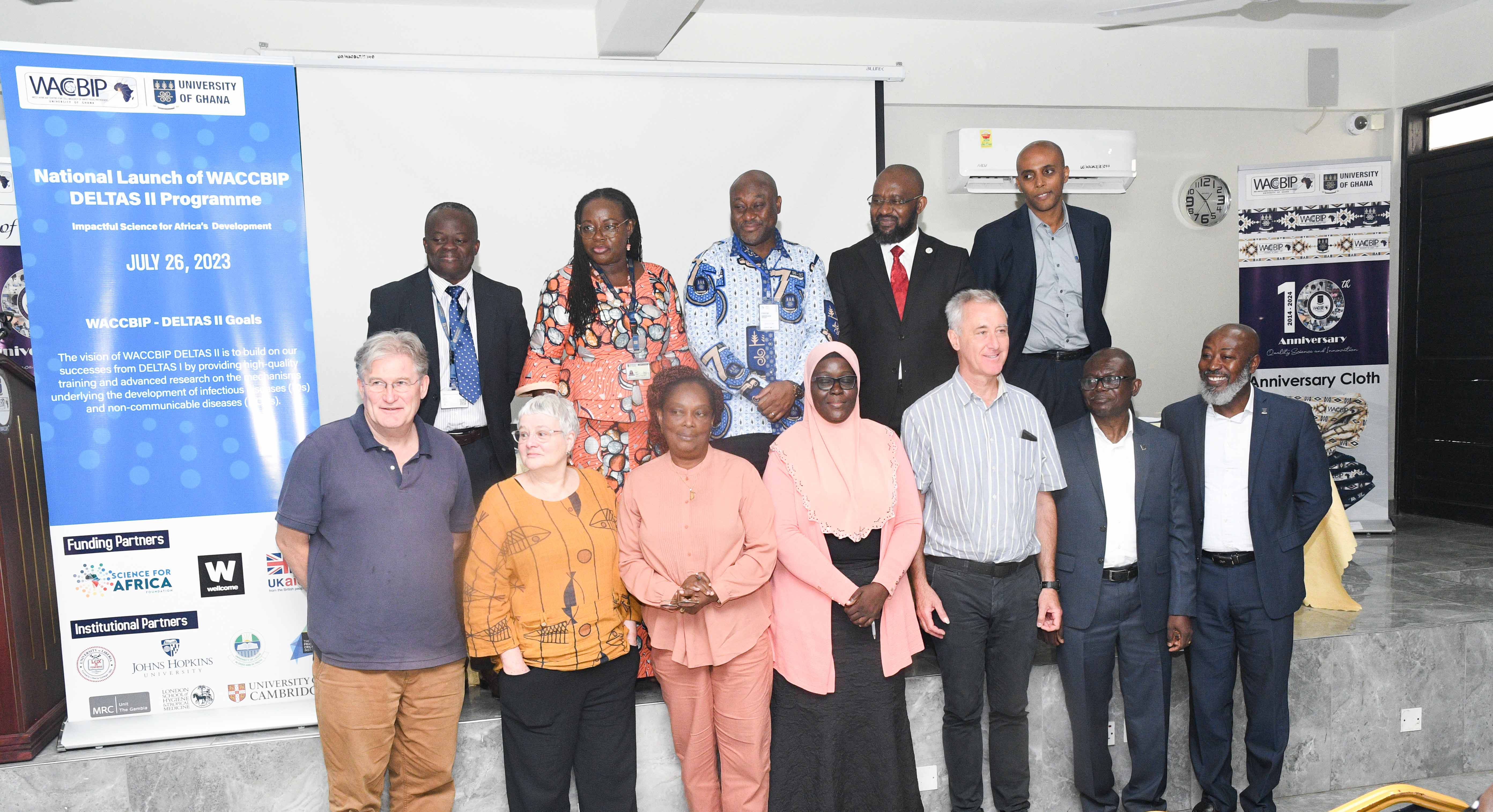
Figure 7 & 8: Group photos of the WACCBIP 10th Anniversary and the WACCBIP DELTAS II National Launch.
Priority areas for research within the DELTAS II programme include malaria, tuberculosis, bacterial infections, COVID-19, HIV-AIDS, and hepatitis B and C, along with non-communicable diseases such as cancer, renal disease, sickle cell disease, diabetes, and non-syndromic hearing impairment. The programme will enhance health research capacity through extensive training and infrastructure development, benefiting not only researchers but also health sector professionals.
Dr. Alphonse Neba, Deputy Director of Programmes at the Science for Africa Foundation, highlighted WACCBIP's capacity-building achievements and the renewal of the DELTAS Africa WACCBIP grants. He emphasized DELTAS Africa's commitment to supporting African-led research and research leaders in Africa. The programme focuses on scientific quality, research leadership, research management, culture and infrastructure, and scientific citizenship.
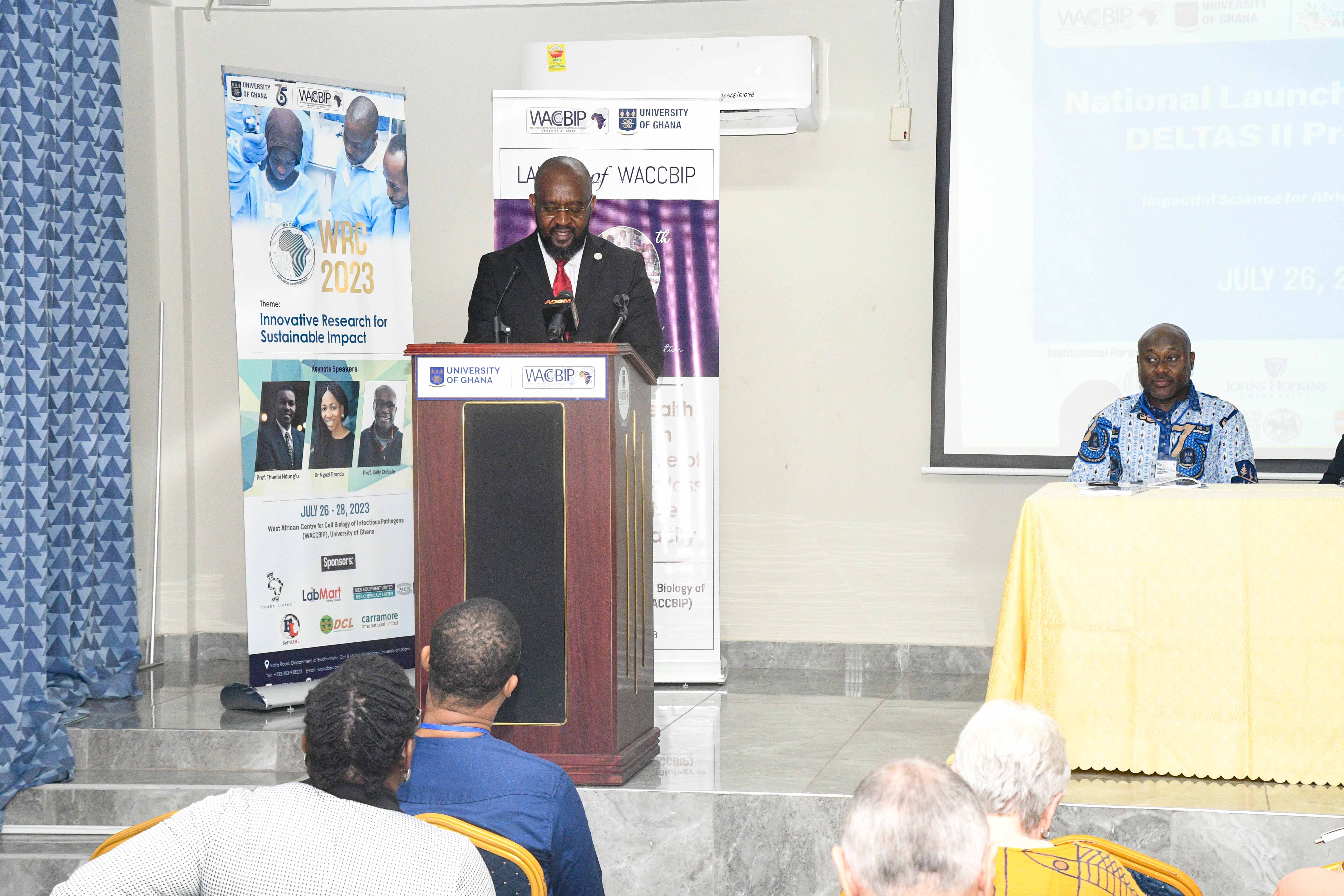
Figure 9: Dr. Alphonse Neba, Dep Director of Programmes at the SFA, highlighting DELTAS Africa's commitment to supporting African-led research and research leaders in Africa.
The WACCBIP DELTAS II programme will run from 2023 to 2026 and support 114 programmes across 75 institutions in 36 countries, including institutions in North Africa and Lusophone countries previously uncovered. This programme seeks to foster lasting change and innovation within the African research landscape, aligning with the goals of a brighter future for all.

